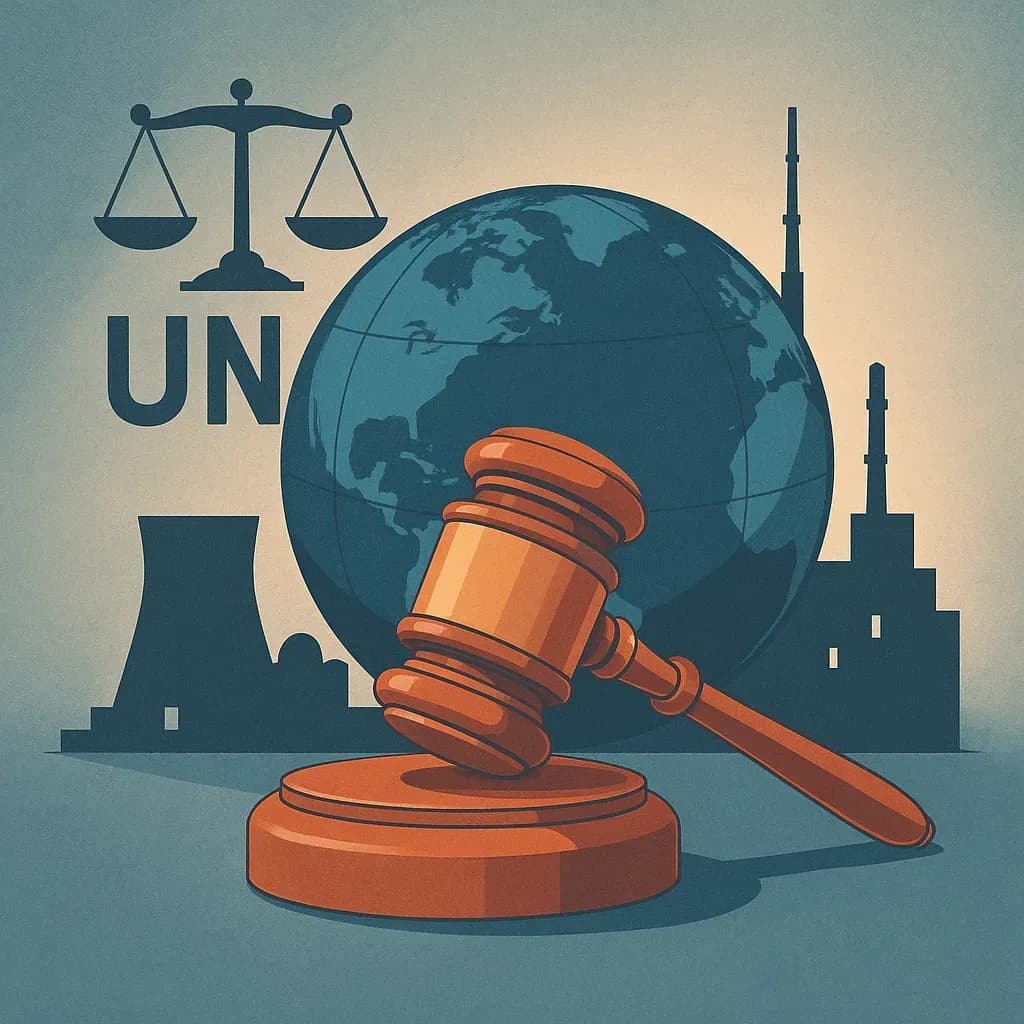UN sanctions on Iran return after Russia and China’s resolution fails in the Security Council. The snapback mechanism triggered by Britain, France and Germany reinstates a global arms embargo, missile restrictions and asset freezes. Tehran denounces the decision and warns of consequences.
Background: the JCPOA and snapback mechanism
In 2015 Iran and six world powers (the United States, Britain, France, Germany, Russia and China) signed the Joint Comprehensive Plan of Action (JCPOA), which eased UN sanctions in exchange for limits on Iran's nuclear programme. The deal included a "snapback" clause allowing any participant to restore UN penalties if Tehran violates its commitments.
After the United States withdrew from the JCPOA in 2018, Iran gradually expanded its nuclear activities. By September 2025 the European powers—known as the E3—accused Tehran of stockpiling highly enriched uranium and developing ballistic‑missile technology in breach of the agreement. They invoked the snapback mechanism, giving the Security Council 30 days to pass a resolution preventing the return of sanctions; without such a resolution, all UN measures in place before 2015 automatically come back into force.
Security Council vote and diplomatic manoeuvres
On 27 September the UN Security Council considered a draft resolution sponsored by Russia and China that would have extended relief under the 2015 nuclear deal for six months. The resolution needed at least nine affirmative votes and no vetoes to pass, but only four countries supported it while nine members, including the E3, voted against and two abstained. With the resolution rejected, the snapback countdown initiated by Britain, France and Germany ran out, meaning all UN sanctions suspended under the JCPOA would return at 8 p.m. EDT. Britain's UN ambassador Barbara Woodward told reporters there was "no clear path to a swift diplomatic solution", while Iran denounced the vote as illegal and warned that Western governments would be responsible for any fallout.
What sanctions return
Snapback will reinstate all UN measures lifted under the JCPOA. These include a global arms embargo, restrictions on Iran’s ballistic‑missile programme and prohibitions on transferring missile technology, bans on the import of nuclear‑related materials, and requirements that all member states freeze the assets of individuals and entities on the sanctions list and bar their travel. Foreign companies involved in Iran’s nuclear or missile activities could face penalties, and UN member states will once again be required to inspect and seize cargo suspected of carrying prohibited items.
Reactions from Iran and the international community
Iran’s leaders condemned the vote as illegal and warned that Western countries would bear responsibility for any escalation. Tehran recalled its ambassadors to the United Kingdom, France and Germany and insisted that the snapback has "no legal effect". Britain, France and Germany said reimposing sanctions was necessary to uphold the integrity of the JCPOA after Iran breached its commitments. Russia and China decried the snapback as destabilising and attempted to delay it in the Security Council, while Israel welcomed the return of sanctions. Analysts say the decision could further strain diplomacy in the Middle East.
Potential impact
Analysts warn that the return of sanctions could further isolate Iran and increase tensions in the Middle East. The arms embargo and ballistic‑missile restrictions will limit Tehran’s ability to procure advanced weapons, while the asset freezes and travel bans could squeeze Iranian officials financially. The move may drive Iran to deepen ties with Russia and China and complicate efforts to revive the JCPOA or negotiate a new agreement. Markets are watching for potential disruptions to oil exports and shipping routes, and regional governments are bracing for possible retaliation by Iranian proxy forces.



